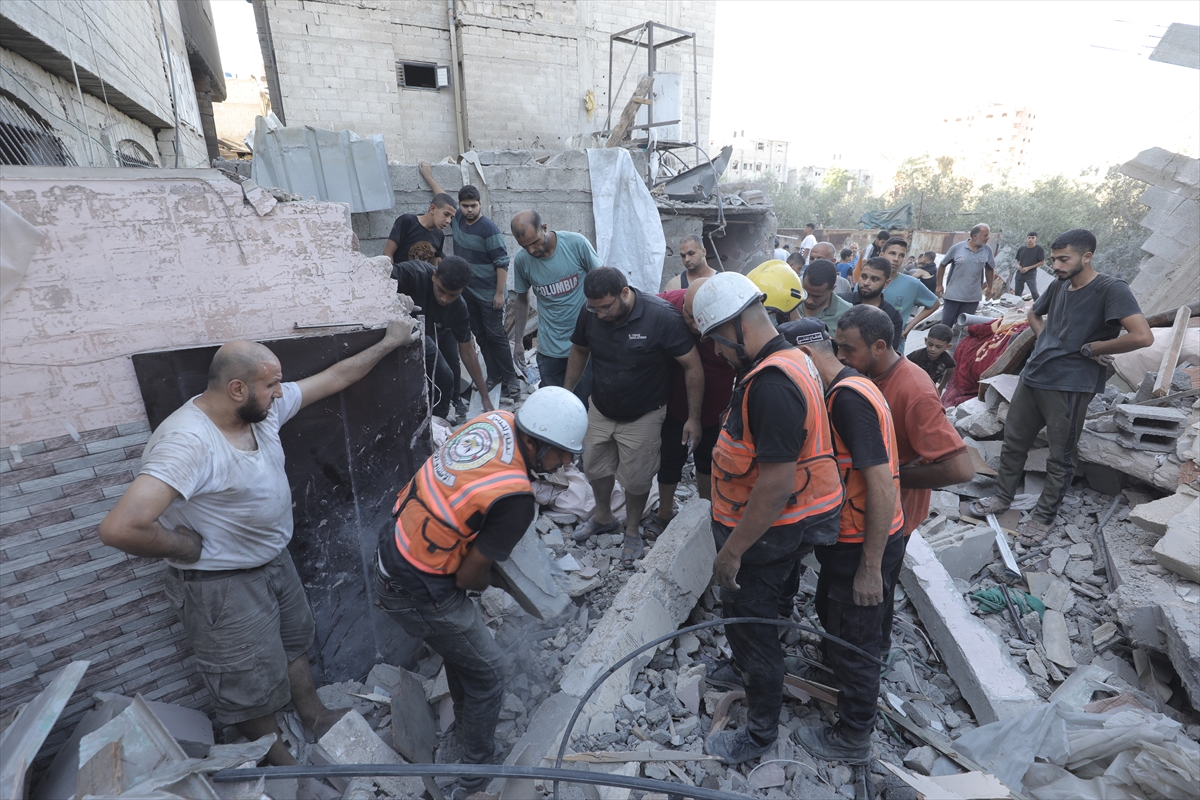
By Nadine Osman
London (The Muslim News): Eight Israeli soldiers were killed during “intense fighting” with Hezbollah [Hizbullah] as Israeli forces attempted to invade the southern Lebanese town of Odaisseh on Wednesday. This confrontation occured just days after Israel commenced a ground invasion of Lebanon, nearly a year after its indiscriminate bombing of the Gaza Strip began. In response, Hezbollah has been launching rockets into northern Israel.
The Israeli Defence Forces initiated what they described as “limited, localised, and targeted ground raids” against Hezbollah in southern Lebanon after weeks of heavy airstrikes on Hezbollah strongholds in Lebanon’s southern regions and the suburbs of Beirut. The airstrikes have killed more than 1,000 people and displaced around one million, according to Lebanese officials. Israel’s aerial operations also included covert strikes that targeted Hezbollah’s communications infrastructure, significantly weakening the group. Its leader, Hassan Nasrallah, was assassinated in a strike on September 27, along with several other senior figures. Despite these losses, Hezbollah’s deputy leader has declared the group’s readiness for further conflict.
Western response to Iran’s retaliatory missile strikes
Tensions in the region have escalated sharply following a series of missile strikes, retaliations, and increased involvement from western powers. On Tuesday evening, Iran launched approximately 180 ballistic missiles targeting key military and security sites in Israel, describing the attack as an act of self-defence.
Iran has issued additional warnings, vowing a “more severe response” if Israel retaliates further. Iranian Foreign Minister Abbas Araghchi stated that Tehran’s missile attack was conducted under Article 51 of the UN Charter as an act of self-defence following the assassinations of key leaders from Hamas, Hezbollah, and Iran’s Islamic Revolutionary Guard Corps (IRGC). “We exercised self-defence… targeting solely military and security sites responsible for genocide in Gaza and Lebanon,” Araghchi asserted.
In response, Israeli Prime Minister Benjamin Netanyahu declared that Iran had made a “big mistake” and would face consequences.
The assault also claimed the life of 38-year-old Palestinian Sameh Khader al-Asali, who was killed by missile debris in the West Bank. Al-Asali, originally from Gaza, had been staying in a Palestinian security forces compound at the time. His funeral was held earlier today, drawing further attention to the human toll of the conflict.
The missile strikes prompted an international response, with the US, UK, and France rushing to defend Israel. The UK played a significant role, with Defence Secretary John Healey confirming that British forces stationed in Akrotiri, Southern Cyprus were involved in intercepting Iranian missiles. “British forces have this evening played their part in attempts to prevent further escalation in the Middle East,” Healey stated.
France also mobilised military resources, with President Emmanuel Macron reaffirming his country’s commitment to Israel’s security. “We scrambled our planes and intercepted what we were supposed to intercept,” Macron said, referring to earlier military operations in the region. Reports suggest French air defences in Jordan, alongside Israeli forces, contributed to mitigating further damage. Similarly, the US confirmed its involvement, with destroyers in the Eastern Mediterranean launching interceptors to counter the incoming missiles, according to Pentagon spokesperson Maj. Gen. Pat Ryder.
Israel bars UN chief from country over Iran attack response
As support from Western allies solidified, tensions between Israel and the UN escalated, leading Israel’s Foreign Minister Israel Katz to declare UN Secretary-General António Guterres “persona non grata,” effectively barring him from entering the country.
Katz accused Guterres of not “unequivocally” condemning Iran’s missile attack on Israel, which has been a point of contention for Israel during its ongoing war in Gaza. “Anyone who cannot unequivocally condemn Iran’s heinous attack on Israel, as almost every country in the world has done, does not deserve to step foot on Israeli soil,” Katz stated on X. He further accused Guterres of “backing terrorists, rapists, and murderers,” calling him “a stain on the history of the UN.”
The foreign minister’s remarks followed Guterres’s statement condemning the escalation of violence in the region, which did not specifically mention Iran. Tensions between Israel and the UN have intensified since the conflict escalated after Hamas’s attacks on October 7. Katz criticised Guterres for failing to condemn the “massacre and sexual atrocities committed by Hamas” and for allegedly supporting “Hezbollah, the Houthis, and Iran,” referring to them as “the mothership of global terror.”
As Israel’s focus has shifted towards Hezbollah, Guterres expressed concern over civilian casualties and called for a ceasefire, stating, “I condemn the broadening of the Middle East conflict with escalation after escalation. This must stop.”
In response to Guterres’s demands for de-escalation, Katz affirmed that “Israel will continue to defend its citizens and uphold its national dignity, with or without Antonio Guterres.” The UN Security Council has scheduled an emergency meeting to address the escalating conflict.
Meanwhile, the situation in Gaza remains critical, with Israeli bombardments intensifying. At least 79 Palestinians were killed overnight, including civilians seeking refuge in evacuation centres and schools. In Khan Younis, in the southern part of Gaza, over 50 Palestinians were confirmed dead by medical sources, while additional casualties were reported across northern and central Gaza, including three individuals at an UN-run centre in Nuseirat. An orphanage in Gaza City was also hit, causing multiple casualties as emergency services struggled to reach survivors amid ongoing strikes.
Humanitarian concerns are growing as Israel’s offensive, triggered by Hamas’s October 7 attack, has caused immense devastation. Over 41,000 Palestinians have been killed, the majority of whom are women and children, and nearly 100,000 have been injured since the conflict began, according to reports.
As the violence continues, Lebanon has also borne the brunt of Israeli airstrikes, with over 1,640 deaths reported in the past year. Hezbollah’s retaliation and Iran’s renewed threats suggest the region is on the brink of a broader conflict. While world leaders urge restraint, the situation in the Middle East remains volatile, with little hope for a swift resolution in sight.